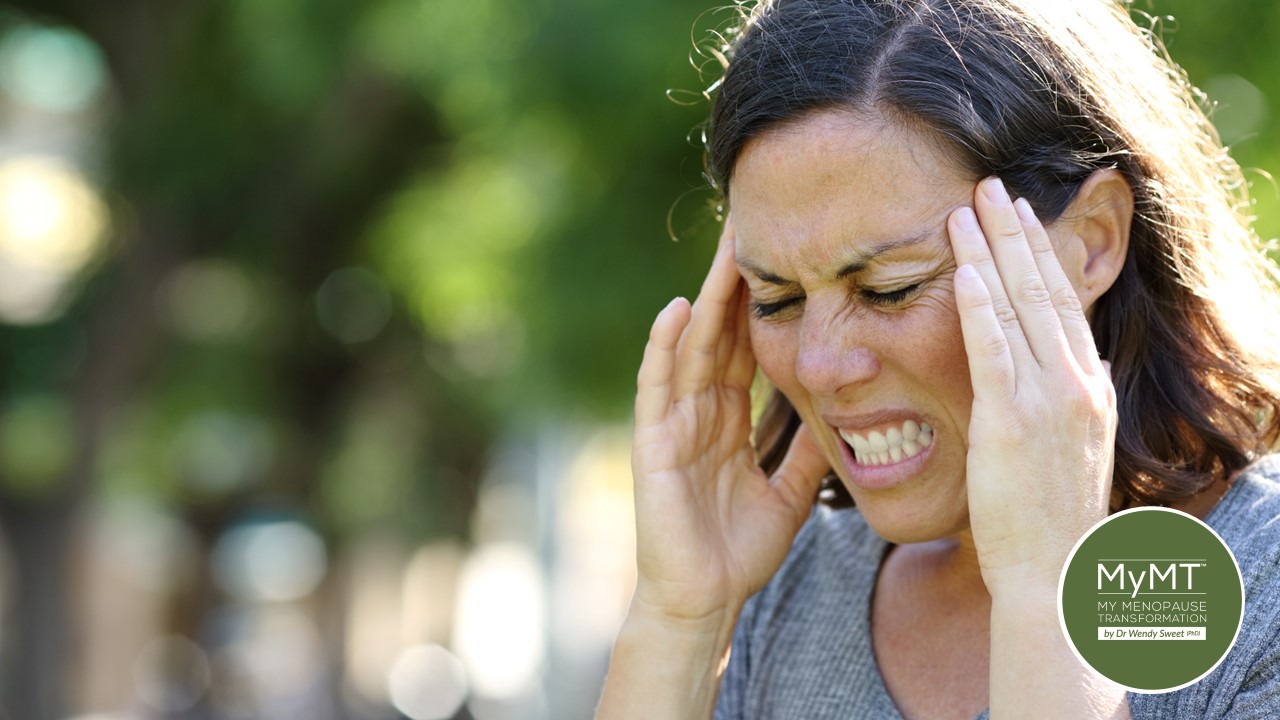Almost a decade ago in my early 50s, just as I was emerging from peri-menopause and into menopause – the year beyond, when periods had ended, even the thought of being able to ski and hike in the mountains was a distant dream. I was too exhausted and sore.
At the time, I nearly hung-up my ski boots for good. From many of your emails to me, I know that many of you, who have been active all of your life, have had to also curtail some of your activities during menopause.
You are simply too exhausted, sore and some of you experience dizziness and balance concerns, which prevent you doing the activities you love.
Changing oestrogen levels impact your iron and ferritin levels:
Understanding that declining oestrogen levels during menopause also change iron and ferritin (stored iron) levels, is important for those of you who feel tired, unwell or you can’t tolerate exercise without becoming breathless easily.
Low iron or ferritin levels may also increase feelings of anxiety and not coping. Just as some of you are finding now that you are in perimenopause or menopause.
You don’t have to be an athlete to benefit from watching your iron and ferritin stores. If you are in perimenopause and still menstruating and you are experiencing hot flushes, night sweats, increased anxiety or sore muscles, then take note to go and get your ferritin, iron and Vitamin B12 levels checked. Add Vitamin D to that list as well.
I’ve come across numerous women who are still competing or participating in vigorous exercise as they move through menopause. Many also have night sweats, hot flushes (hot flashes), anxiety, emotional turmoil and poor recovery and poor performance from their training and competing.
But instead of getting their iron, ferritin or B12 levels checked, they are put on Menopause HRT – there is nothing wrong with this obviously, but often they still get hot flushes and experience dizziness.
I’ve heard from many women who have to take time off work because of their dizziness. That’s because feeling dizzy can induce nausea, vomiting, balance dysfunction, and as I found myself, especially when exercising, it can reduce your confidence in your body coping with whatever activity you are used to doing.
You don’t have to be an athlete either to suffer from low iron – whether you are sedentary or active, monitoring your iron levels is an important part of your hot flush management and reduction of dizziness (as are balance exercises) as you move through menopause.
WHY DO I FEEL DIZZY?
The connection between menopause, vertigo (dizziness) and oestrogen changes is an intriguing one.
Which is why I want to thank the researchers at the Boys Town National Research Hospital in Omaha, USA, because I learnt about OTOCONIA (Ogun et al, 2014). This helped me understand why there is the connection between our changing oestrogen levels, our biological ageing and dizziness and balance problems as we go into post-menopause.
Otoconia are bio-crystals which are made from protein and calcium molecules.
The highest scores for reporting of vertigo (dizziness) problems in the Nebraska study, [dizziness is medically known as Benign Paroxysmal Positional Vertigo (BPPV)], were reported in women aged between 10-19 years and 40-52 years who reported that they were either in menopause (peri-menopause) or out the other side (post-menopause).
Nearly 50% of the women in the older age group in the Nebraska study, reported that they experienced their first dizziness and balance episodes after menopause and, even more surprising, was that 22% of those who have had their ovaries removed and 32% of women who had a hysterectomy, reported on increasing vertigo episodes.
BPPV occurs when head position changes (lying down, looking up, or turning over in bed) causing short, recurrent vertigo spells.
BPPV is a result of these tiny crystals in your inner ear being out of place.
The crystals make you sensitive to gravity and help you to keep your balance when oestrogen is high, but low oestrogen, low calcium and hair loss in your ear canal with ageing, cause these tiny bio-crystals to get out of place.
Normally, a jelly-like membrane in your ear keeps the crystals where they belong. This is because your sense of balance relies on a finely tuned system that coordinates sensory information (from nerves throughout your body) and visual information to help you determine the position of your body relative to your surroundings.
The role of oestrogen in all of this, is to ‘couple’ or help this jelly-like protein substance to adhere and therefore, help to provide a mechanic force to the sensory hair cells in the ear canal.
This process is essential for us to sense linear acceleration and gravity for the purpose of maintaining our balance. Hence, why balance exercises are important to over-ride the changes to the ear canal during menopause.
But don’t forget that low iron (anaemia), low ferritin and dehydration may affect feelings of dizziness too, so please get your dizziness checked out with your medical professional. I talk about dizziness in my own programmes, especially as women get back into exercise on my 12 week, Rebuild My Fitness programme.
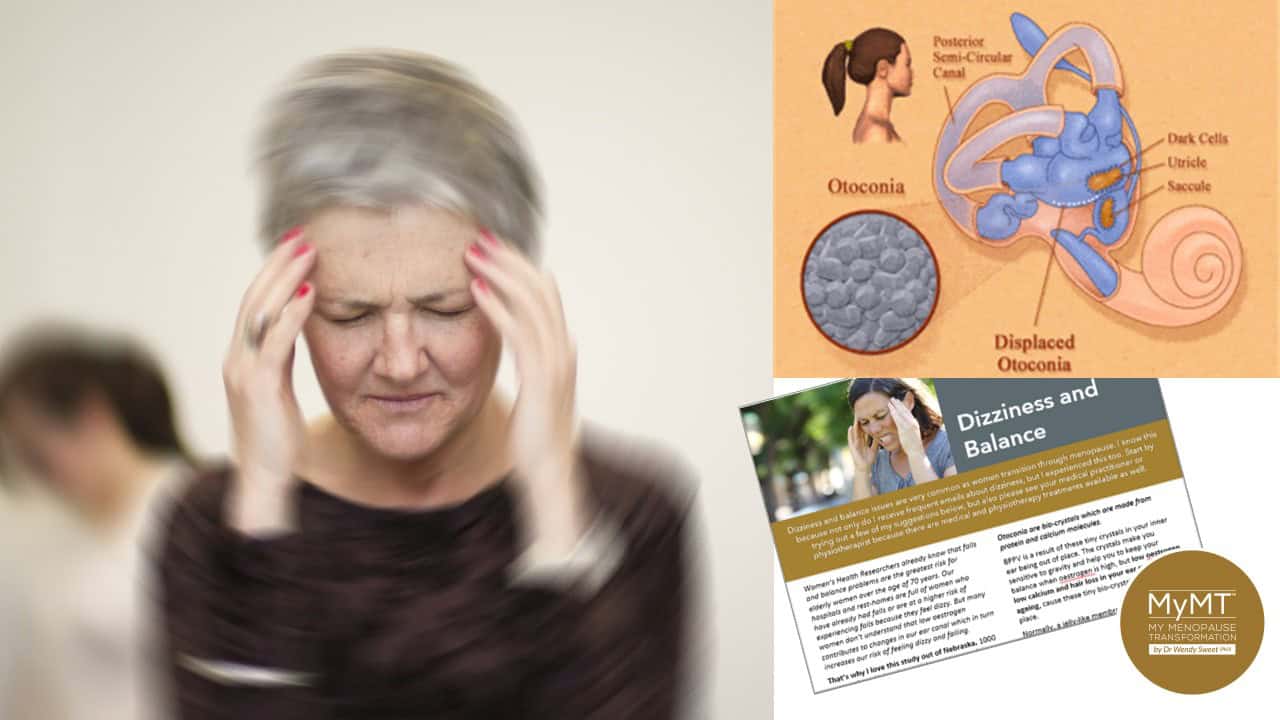
When I was over in Switzerland last year, I did lots of skiing and hiking. A few years ago I wouldn’t have been able to do this because my knees, feet and muscles ached continuously and I was so tired.
Remembering this and what I began to do about it, is in this short video which I made, just for you at the time. If you are struggling at the moment, then I hope it gives you … hope.
If you are lining up for your menopause HRT, then perhaps ask to get iron and ferritin (stored iron) levels checked as well as Vitamin D. All of these blood markers, if low (or if iron is high), impact your symptoms, including feelings of dizziness. And conversely if you are in Post-menopause and therefore, not menstruating any more, your iron and ferritin levels may actually be high.
It is well known in sport and exercise science that female runners are at higher risk of low iron levels. For women in menopause who exercise, it’s the same. But not sleeping, low iron and menopause hormonal changes, also impact on temperature, hot flushes, night sweats and the immune system.
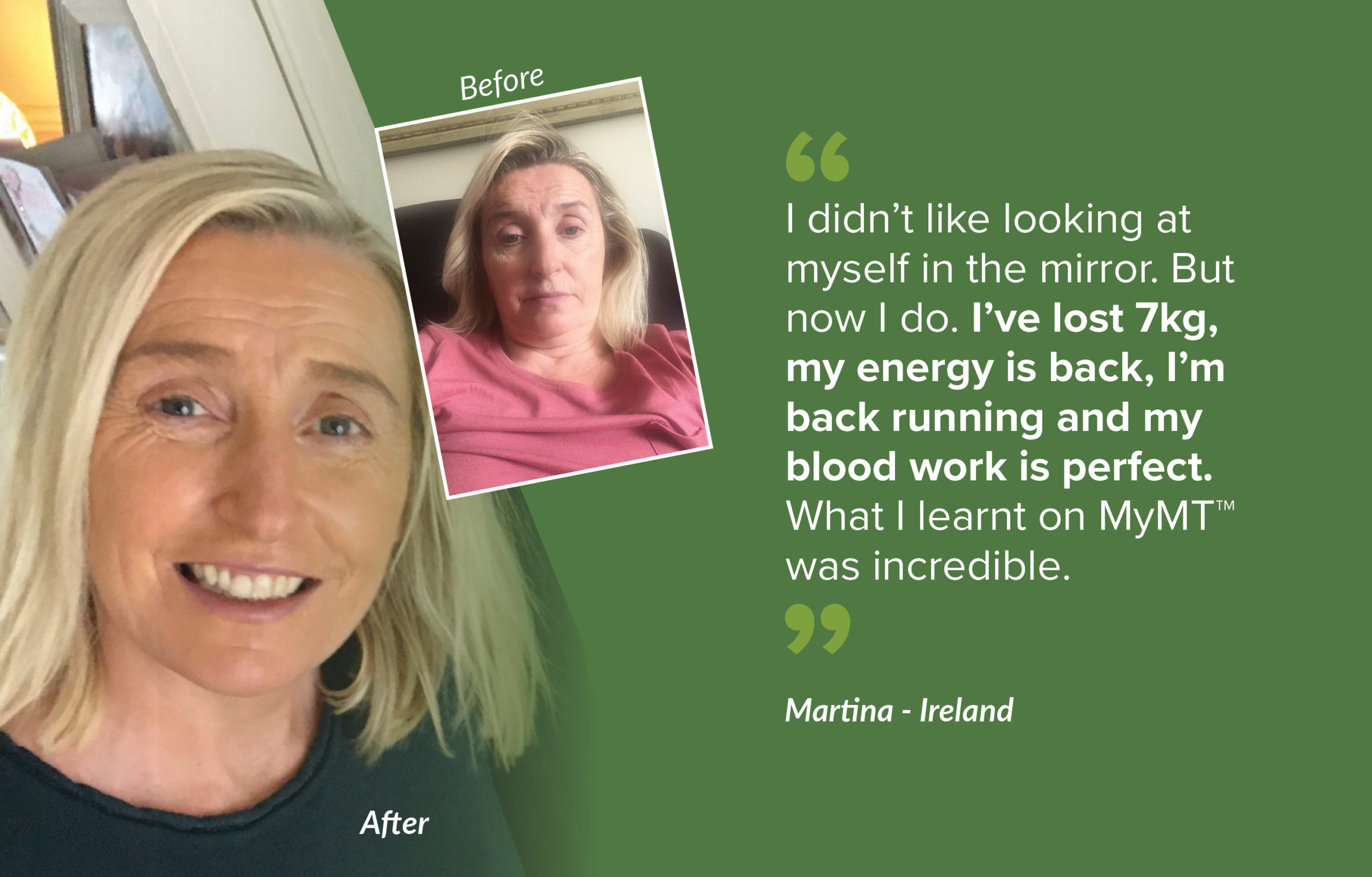
Persistent tiredness, feelings of lethargy, dizziness, upper respiratory tract infections and of course, not sleeping are well known symptoms of over-training syndrome, but so too are night sweats, hot flushes and a temperature regulation system, that is out of balance.
It’s the same for female athletes.
Whilst I was over in Switzerland last year, I also didn’t realise that Cheryl and her daughter were trekking to Everest Base Camp. If there is a hike that is going to test your fitness, health and your resilience, then it is hiking at altitude. How amazing they were to get there and as Cheryl mentioned to me,
“I never wavered from the goal of reaching Everest Base Camp, even though others were having an easier time of it. The takeaway from it all is to trust your body to not fail … it won’t if given the right mind set and you have the right knowledge, which I had from doing your programme.”
Improving her understanding of the role that menopause plays in her fitness was integral to Cheryl’s success and you can read her story HERE when you get a chance.
Knowing also that there are essential nutrients that she needs in order to look after her joints and muscles as well as recover-well, was an important sharing of information I had with her in the programme.
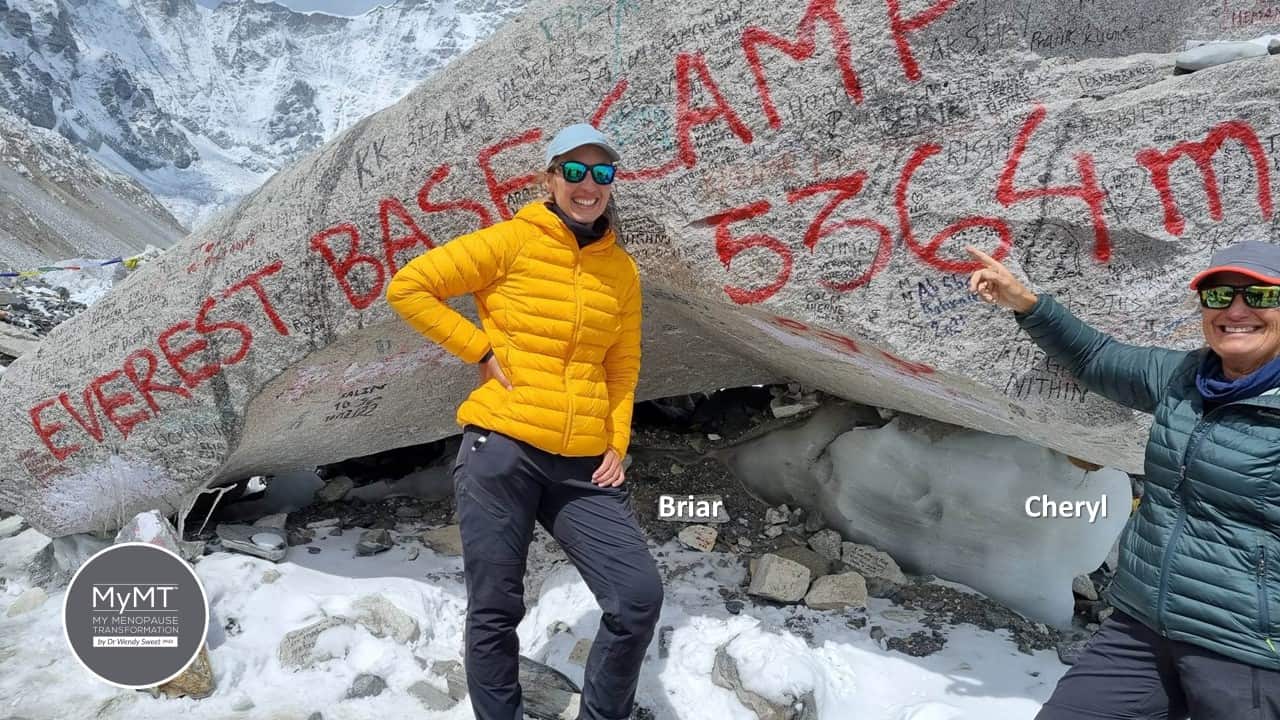
Vitamins and minerals are essential to a myriad of physiologic functions, and a deficiency results in a wide variety of disorders. Among these disorders is the inability of mammals to maintain body temperature adequately in the cold or in the extreme heat.
Whether you are on Menopause-HRT or not, you need to understand that in menopause or post-menopause, there is an intricate link between your sleep, your hot flushes and your iron levels – too little or too much and your temperature regulation gets out of balance.
Freedom from menopause symptoms and poor health as you age is yours to choose.
With the myriad of symptoms I was experiencing a few years ago as well as the weight gain, I’m so pleased that as part of my own menopause journey, I chose healthy ageing.
Doing this, alongside understanding what and how to change specific lifestyle factors, reduce inflammation and boost my ageing immune system, helped me retain my self-identity as well.
It is well known in sports psychology that we suffer most when we believe that we have no control over our lives. But with the understanding of what is going on with our changing physiology during menopause we can take back control.
For numerous women in my coaching group, this means slowly removing themselves from the thoughts and beliefs that keep them in their current lifestyle routines and habits. Afterall, as their body is changing hormonally, then it’s important to change with it.
Through this, we can support our growth and wellness at this time of life. If you are feeling out of control, I hope you can join one of my 12 week programmes sometime. My passion is for you to live your best peri-to post-menopause life free of symptom chaos.
Dr Wendy Sweet (PhD)/ MyMT™ Founder/ Member: Australasian Society of Lifestyle Medicine
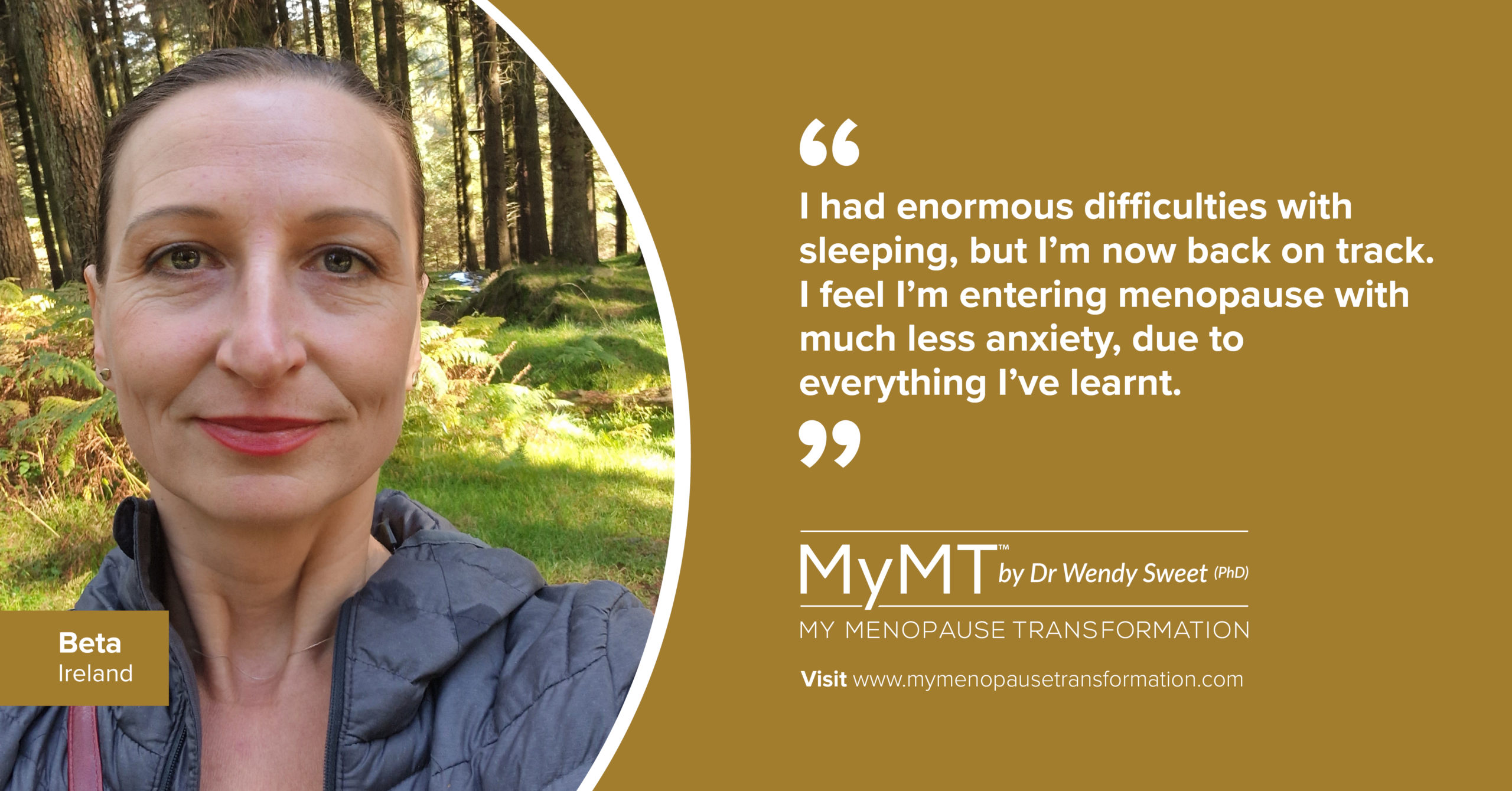
References:
Kaitha S, Bashir M, Ali T. Iron deficiency anemia in inflammatory bowel disease. World J Gastrointest Pathophysiol. 2015 Aug 15;6(3):62-72. doi: 10.4291/wjgp.v6.i3.62.
Miller EM. The reproductive ecology of iron in women. Am J Phys Anthropol. 2016 Jan;159(Suppl 61):S172-95. doi: 10.1002/ajpa.22907.
Ogun OA, Janky KL, Cohn ES, Büki B, Lundberg YW. Gender-based comorbidity in benign paroxysmal positional vertigo. PLoS One. 2014 Sep 4;9(9):e105546. doi: 10.1371/journal.pone.0105546.
Sincan, G., Sincan, S., & Bayrak, M. (2022). The effects of iron deficiency anemia on sleep and life qualities. Annals of Medical Research, 29(2), 108–112. Retrieved from https://www.annalsmedres.org/index.php/aomr/article/view/4054
Terauchi M, Odai T, Hirose A, Kato K, Akiyoshi M, Masuda M, Tsunoda R, Fushiki H, Miyasaka N. Dizziness in peri- and postmenopausal women is associated with anxiety: a cross-sectional study. Biopsychosoc Med. 2018 Dec 12;12:21.
